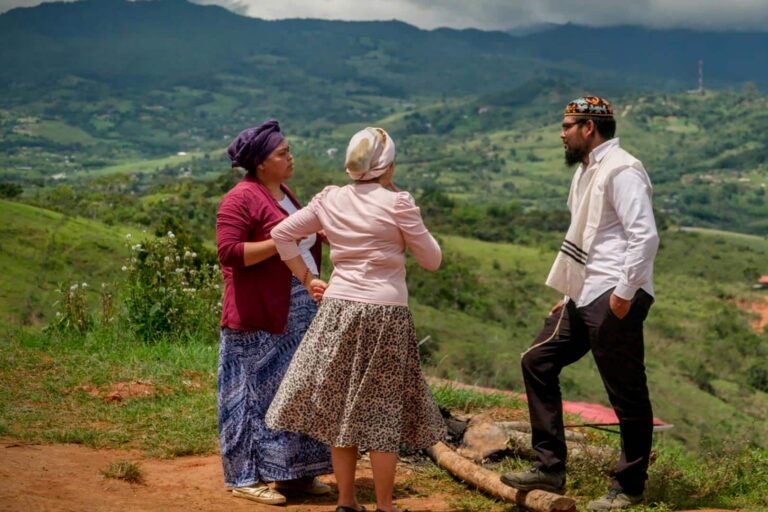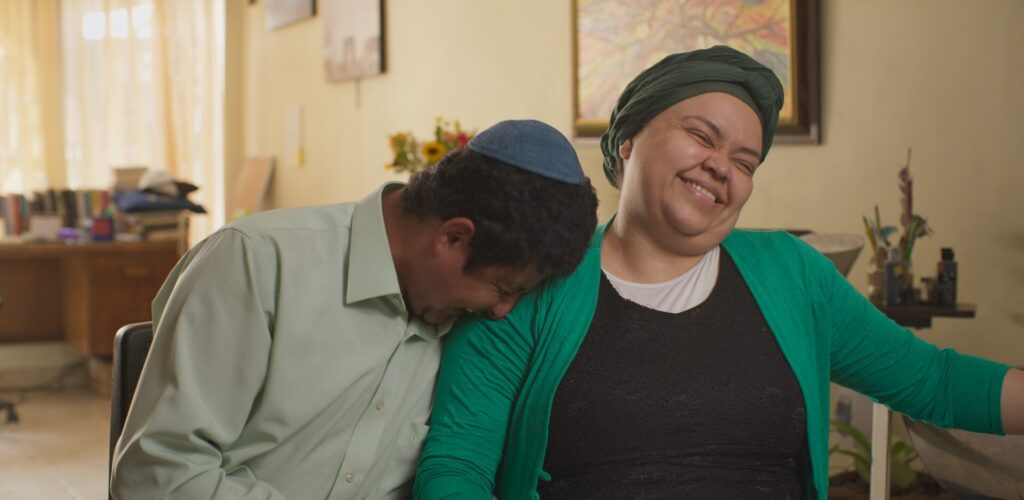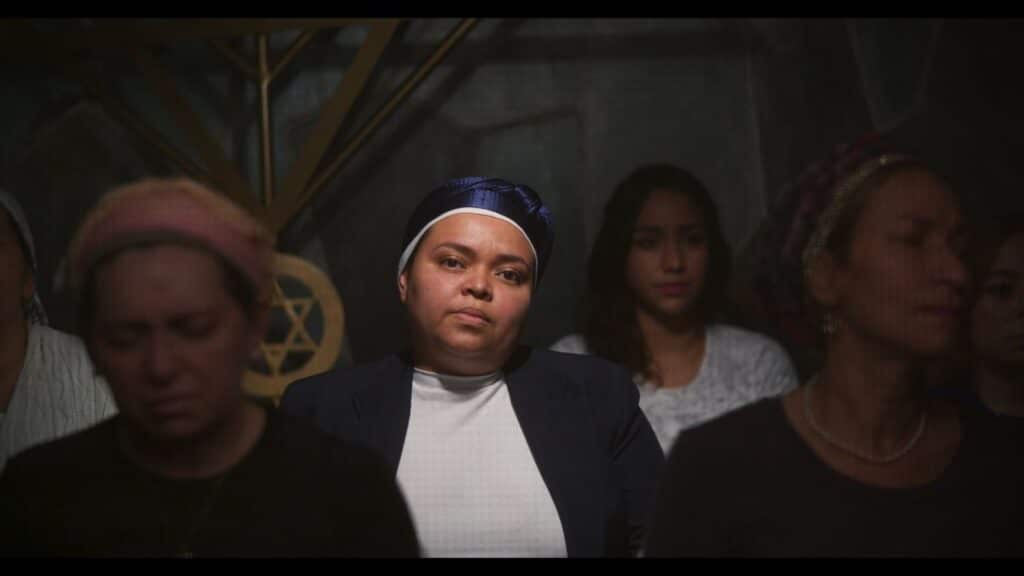
Jewish identity is not monolithic — there is no right way to be Jewish. That’s the core message behind “Torah Tropical,” the new documentary from Ezra Axelrod and producer Heidi Paster whose Washington Post photo essay inspired the film. Premiering at the New York Jewish Film Festival, the documentary follows Isska and Menajem, two Jewish converts in Cali, Colombia, as they build a vibrant Jewish life with their two daughters and a small but dedicated community.
However, when their dream of making aliyah — immigrating to Israel — is thwarted, they are forced to return home, defeated, and rebuild their lives. In addition to directing, Axelrod serves as a music supervisor for “Torah Tropical” and his choices to include both Ladino music as well as Isska’s singing emphasizes the diversity of Jewish experiences.
A Journey of Faith and Struggle
When I first entered the theater, I wasn’t sure what to expect, but “Torah Tropical” gave me a greater appreciation for Judaism and my own proud Jewish community here in New York City. The film immediately immerses us in Isska and Menajem’s emotional world with a raw and intimate scene: they are in tears as they book plane tickets to Israel, a dream they’ve nurtured for years. From there, we are taken on a journey that leads up to that moment—one filled with devotion, resilience, and an unwavering desire to be fully recognized as Jews.
Menajem embodies his faith in every aspect of daily life. He begins each morning by wrapping tefillin, bakes challah for friends, and even painstakingly writes a Torah scroll that he hopes will become a cherished family heirloom. Meanwhile, Isska and the other women in the community search for a mikveh (ritual bath) and try to learn Hebrew. Amid the news of violence and drugs in Cali, the small but tight-knit Jewish community makes space for themselves and their new traditions.
But while they are seen as respected Jewish individuals in their community, Israel itself does not recognize them as such. Their journey isn’t just a religious pilgrimage; it is a desperate attempt to be officially acknowledged as Jews and to live fully within a Jewish society.

The crush reality of rejection
When packing, they hide their Jewish artifacts, signifiers of their Jewish identity, hoping to evade suspicion. Isska even uncovers her hair, a commandement she has taken on as a married Jewish woman. Menajem acknowledges the struggle they will have to face: to be granted access to Israel they must restart their conversion process complying with stricter rabbinical standards in Israel to live a Jewish life.
But when they finally land, their worst fears are realized — they are denied entry and forced to fly back to Colombia, ending a dream that was almost coming true. The rejection is not only a personal loss but a painful reminder of the barriers that exist within Jewish identity and recognition.

Reinvention after failure
In their failure to reach Israel, Isska and Menajem have both their faith and relationship tested. As they attempt to rebuild their lives in La Cumbre, a much more tropical part of Cali, their situation mirrors a biblical exile—denied entry into the Promised Land, they find themselves wandering, searching for stability and acceptance elsewhere.
Despite the setback, they persist and slowly begin to heal, reuniting with members of their old congregation and Isska works toward greater self-sufficiency to support their family.
What makes this movie shine is the love and desire for acceptance that Isska and Menajem have. He works hard to make a Jewish home for his family and Isska uses music and song to connect to Judaism. In one scene, Menajem and Isska prepare for Shabbat while listening to a song that translates to, “we are all one people. Ashkenazi or Sephardic, it doesn’t matter.” The moment encapsulates the film’s central theme—Judaism is not defined by geography or lineage alone but by faith, practice, and community.

“Torah Tropical” is a documentary about strength
The film ultimately becomes a meditation about how far strength and belief can take you. The family’s struggles extend beyond their dashed dream of aliyah — they face financial hardship and struggle to get their stuff back. Their daughters are confused by returning home and Isska is depressed, describing being surrounded by the beauty of La Cumbre yet unable to fully embrace it. Nonetheless, they try to move on, and through their friendship and love of Judaism, their life changes for the better as they return to normalcy. Yet even at the end of the film, the dream remains as the family still hopes to step onto Israeli soil as fully recognized Jews.
The film’s pacing and structure — opening with the family purchasing their plane tickets to Israel — allows the audience to be emotionally intertwined with Menajem and Isska’s lives from the get go. From the outset, we understand what’s at stake, even before we really know them. When we do get to know the family, they don’t succeed, making it all the more painful to watch. “Torah Tropical” is an emotional roller coaster, but one that ends with hope amid strife for the family and Cali itself.
Originally Published Feb 16, 2025 01:02PM EST
